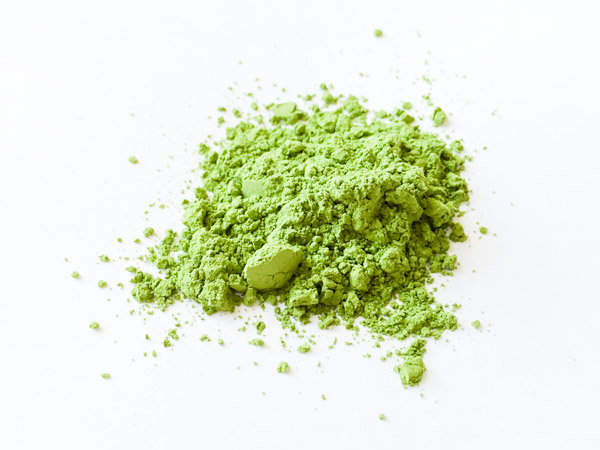Most people worldwide perceive organic products to be of the highest quality. Gradually, health-conscious individuals have become fans of organic matcha tea too. Organic matcha powder is a Japanese commodity that has made its way toward the heart of conscientious consumers.
Undoubtedly, organic matcha offers more benefits to both humans and the environment. It is grown without using chemicals, synthetic fertilizers, pesticides, and bioengineered genes (GMOs), respecting the environment and animal welfare at every stage.
Organic Japanese matcha tastes potent and has a unique flavor. Organic matcha tea is rich in antioxidants and an amino acid called L-theanine, contributing to a relaxing effect on the mind and body. This is not a new concept as the Japanese have been consuming it for centuries because of its myriad of health benefits.
How Is Organic Matcha Powder Made ?
The organic matcha powder is made of 100% Tencha leaves, the highest quality green tea leaves. Tencha leaves are shade-grown – a process that involves growing the tea bushes under a canopy of fabric or other material – so that the leaves can produce more chlorophyll and umami (the fifth taste). This intensifies the flavor and color of the leaves and the resulting matcha powder.
The production of organic matcha powder begins with farmers harvesting the tea leaves. The leaves are then handpicked and sorted by size and quality, and only the finest are used to make matcha.
Once the leaves are selected, they are shade-grown for about 2-4 weeks. This process involves covering the tea bushes with a canopy of fabric to block out most of the sunlight, causing the tea leaves to become darker and richer in flavor. During this period, the farmers regularly check on the tea leaves and adjust the fabric accordingly.
The leaves are steamed for about 10 seconds in order to stop the oxidation process and preserve the flavor. Leaves are de-veined and de-stemmed, and then stone-ground into a very fine powder. This process helps enhance the natural aroma and flavor of the matcha powder.
Why Should You Buy Organic Matcha Powder Over Non-Organic Matcha?

- Organic matcha is not contaminated with toxins.
It is free from herbicides, synthetic fertilizers, and pesticides, making it a healthier option than non-organic matcha.
- Organic matcha tea offers more nutrients.
The cultivation of organic matcha tea requires a great amount of hard work and commitment, resulting in a tea rich in nutrients. Along with the robust flavor, organic matcha is packed with antioxidants, vitamins, minerals, and the amino acid L-theanine. L-theanine has been linked to increased focus, relaxation, and improved cognitive function.
- Organic matcha is rich in antioxidants.
The most prominent type of antioxidant in matcha green tea are catechins. The catechin amount in green tea is 5.46–7.44 mg/g which is much higher than in black teas with 0–3.47 mg/g. Catechins are linked to a number of health benefits.
- Organic matcha is a more sustainable option.
Organic matcha farming involves minerals and organic microbes that recharge the soil. Though this method is quite time-consuming, it nurtures clean water, air, and healthy soil. It doesn’t jeopardize the health of the soil and the environment, making it a more sustainable option.
- Organic matcha is the highest quality tea.
Organic matcha is grown to a high standard, with strict regulations in place. It is ethically produced with patience, hard work, and the highest quality minerals making it a high-value drinking option.
Final Words
Organic matcha powder is an excellent option for health and environmentally conscious folks. The farming of organic matcha is precisely done using organic methods, ensuring maximum benefits for the environment and the consumer. The antioxidants catechins and amino acid L-theanine present in the organic matcha powder offer significant health benefits. The farming method is time consuming, but it helps deliver a final product that’s clean and abundant with the nutrients matcha is best known for.

